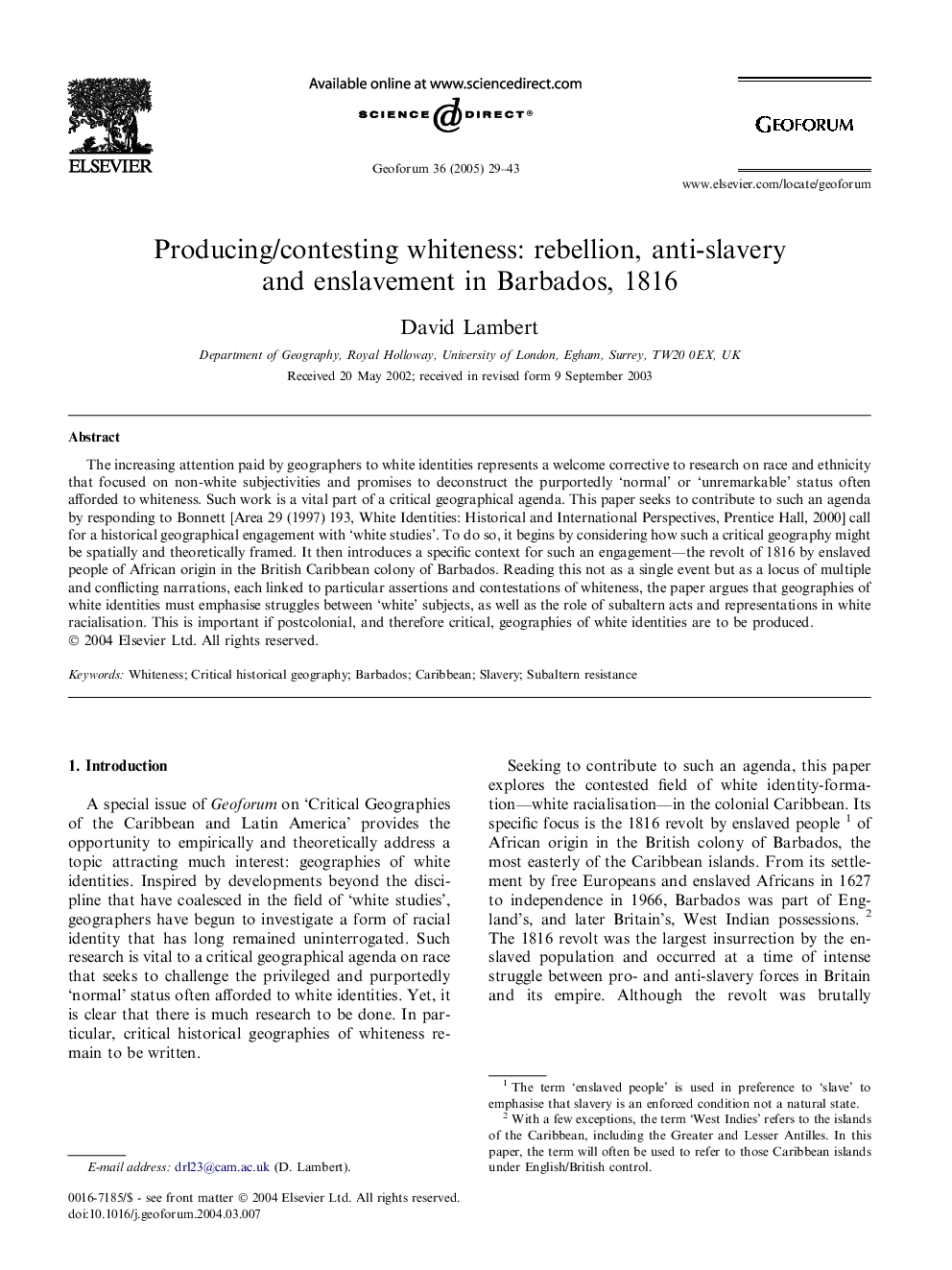| Article ID | Journal | Published Year | Pages | File Type |
|---|---|---|---|---|
| 9552353 | Geoforum | 2005 | 15 Pages |
Abstract
The increasing attention paid by geographers to white identities represents a welcome corrective to research on race and ethnicity that focused on non-white subjectivities and promises to deconstruct the purportedly `normal' or `unremarkable' status often afforded to whiteness. Such work is a vital part of a critical geographical agenda. This paper seeks to contribute to such an agenda by responding to Bonnett [Area 29 (1997) 193, White Identities: Historical and International Perspectives, Prentice Hall, 2000] call for a historical geographical engagement with `white studies'. To do so, it begins by considering how such a critical geography might be spatially and theoretically framed. It then introduces a specific context for such an engagement--the revolt of 1816 by enslaved people of African origin in the British Caribbean colony of Barbados. Reading this not as a single event but as a locus of multiple and conflicting narrations, each linked to particular assertions and contestations of whiteness, the paper argues that geographies of white identities must emphasise struggles between `white' subjects, as well as the role of subaltern acts and representations in white racialisation. This is important if postcolonial, and therefore critical, geographies of white identities are to be produced.
Related Topics
Social Sciences and Humanities
Economics, Econometrics and Finance
Economics and Econometrics
Authors
David Lambert,
